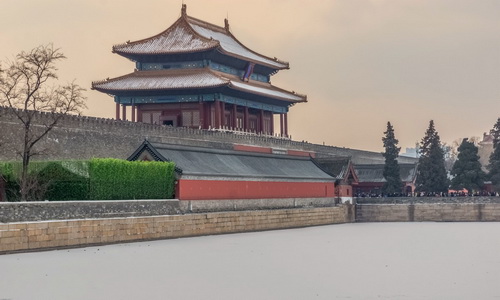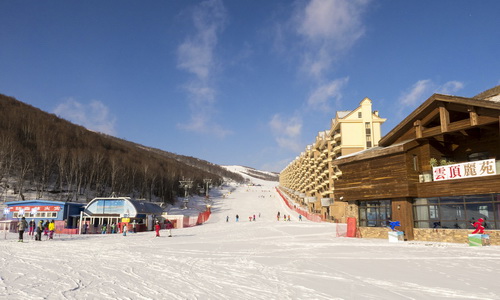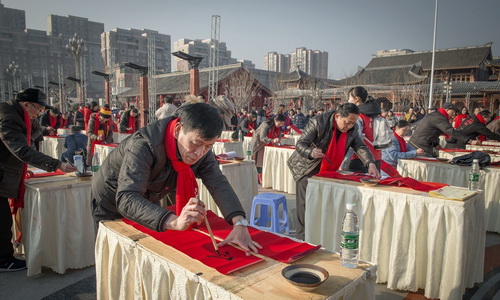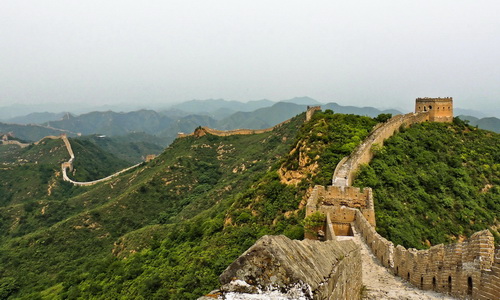Top 6 Winter Experiences in Beijing
Winter is arguably a wonderful season to visit Beijing when the city displays different landscape for visitors to admire. Beijing gets a long winter with more than 100 days of the year (from November to February). It seldom rains but there is plenty of sunshine. A big advantage of a winter trip in Beijing is fewer tourist crowds and more amazing photo chances.
Winter would be a bit cold but there will be a lot of fun experiences that one cannot have in other seasons, such as skiing, ice skating, bathing in hot spring, enjoying copper hotpot, experiencing Chinese Lunar New Year and Ice Lantern Festivals. If you are planning a tour to Beijing in chilly days, this article will give you some insights into how to make the most of your vacations.
Forbidden City, once the residence of 24 Chinese emperors over five centuries, is exceedingly splendid when it is shrouded in snowfall. The huge complex of palaces, courtyards and gardens turns into a winter wonderland that even appeals to the local residents. It is quite a delight to stroll under the reddish palace walls to meet palaces and halls with yellow upturned roofs and eaves coated with white snow, which let you travel back in time to the ancient court life of feudal dynasties.

Furthermore, the snow-capped Forbidden City is even more of a photographer's paradise viewed from the Jingshan Park, a superb point facing the north gate of Forbidden City. With higher elevation, Jingshan Hill presents you a terrific full view of the Forbidden City that looks more solemn and majestic than usual.
Not just for historic and cultural sights, Beijing is also blessed with excellent outdoor adventures in winter. In the outskirts of Beijing, there are a great number of superb ski resorts fitting skiers and snowboarders of all levels, and different international standard slopes and trials are facilitated for you to choose from. Especially for travelers with children, the whole family could indulge themselves in the fun snow activities like skiing, snowboarding and sledding.

In 2022, Beijing will host the Winter Olympic Games, and you could chase after the Olympic Spirit by venturing into one of the top notch resorts, such as Zhangjiakou Chongli Ski Resort, Nanshan Ski Resort, Huaibei International Ski Resort and Badaling Ski Resort.
The summer Palace is definitely a paradise for fun where you can go boating at warm days while ice skating in freezing time. From January to early February, the serene Summer Palace would turn into a rink for local Beijing people retaining their traditional pastimes, ice skating.
Covering an area of 700,000 square meters, Kunming Lake boasts the largest natural rink in downtown Beijing. It offers pleasures for both old and young, experienced skaters and first timers. You could just wear your causal shoes and sit in comfort on a bike-sled chair to explore the sights that surround the lake. To stay away from local crowds, you'd better avoid going at weekends. Please note that the availability of skating largely depends on the temperature and the weather of Beijing.
In China, a hotpot meal would be the best console to cope with the cold winter. Many foreigners would turn pale at the mention of a Chinese hotpot, a popular but incredible food that may destroy a sensitive stomach. However, unlike Sichuan hotpot featuring pungent and bloody-spicy flavor, Beijing offers a traditional Mongolian hotpot with lamb, beef and vegetables, served on a copper pot and heated by charcoal fire.
Free of chili, the instant-boiled hotpot tastes light, fresh and a bit salty, which is health friendly to nearly everyone's tongue and tummy. There is no more pleasant stuff than a hotpot in a cold winter that engages families and friends to sit by fireside and enjoy dainties.
Defined by Chinese lunar calendar, the Spring Festival usually falls in late January or February of winter time. It is the biggest traditional festival for Chinese people to reunite with families just like Christmas in the West. If you are planning a tour to Beijing in winter, do consider a special Chinese new year experience. About half a month before and after the Spring Festival, Beijing would be highlighted by glitzy decorations everywhere including the streets, parks and malls.

Especially diving into the hutong alleys that crisscross the city's central historic area, you would see many traditional residences decorated by red lanterns, couplets and New Year pictures. The temple fair in some ancient temples are particularly big draws for westerns to discover Chinese culture and customs by rich activities, such as Peking Operas, dragon dance, lion dance, costume parades, acrobatics and martial arts. One thing that you need to consider is to book everything as early as possible as it is the busiest time for the country's transportation systems.
Visiting the Great Wall is never out of trend in anytime of the year. For adventurous tourists, Simatai characterized by its original wildness is an off-the-beaten path among all the parts of the Great Wall. Some spots are missing and ruined, but they make Simatai one of the best places for hiking in Beijing. Less crowded but more authentic, Simatai is even a bit more spectacular in winter when a sense of history is unveiled.

At the foot of Simatai is nestled by Gubei Water Town, an ancient getaway from city bustle. The water town not only boasts fascinating scenery but also plenty of hot springs. After a hard excursion on the Great Wall in chilling winter, a soak spa in the hot spring would ease every cell of your body.









